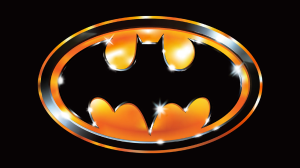
On the press tour and at the premiere, the cast and crew of Suicide Squad seem to be a well-bonded team with insane loads of chemistry between them. However, a new report suggests that production of the film was clouded with indecision, disagreement, and anxiety.
Videos by ComicBook.com
According to the report from THR, the behind-the-scenes drama circling Suicide Squad began when the film was announced in October of 2014 when Warner Brothers unveiled their slate of DC Comics films which included 10 titles releasing through 2020. Suicide Squad would be rushed to make the August 5, 2016 deadline given its state of development at the time but pushing it back was never an option. “It’s not just that you’ve told the public the movie is coming, you’ve made huge deals around the world with huge branding partners, with merchandise partners,” says a source tied to the project. “It’s a really big deal to move a tentpole date.”
So, with the pressure to not only deliver a finished film in a short window of time already coming down on the filmmakers, the added need for success following Batman v. Superman: Dawn of Justice‘s failure to reach the desired $1 billion haul was added to the mix. Plus, we all know how those reviews for Dawn of Justice turned out, too.
The rushed production schedule seems to suggest that executives stepped in, forcing Suicide Squad‘s director David Ayer down certain paths at certain times, which built costs and anxiety at the same time. It isn’t said to have been as extreme as the fallout on the Fantastic Four set which bombed last year, with Ayer still clearly emerging as the director unlike Josh Trank. “This was an amazing experience,” said Ayer and Warner production president Greg Silverman in a joint statement. “We did a lot of experimentation and collaboration along the way. But we are both very proud of the result. This is a David Ayer film, and Warners is proud to present it.”
According to some insiders, that may not be exactly the case.
“[Warner Brothers CEO] Kevin [Tsujihara] was really pissed about damage to the brand,” says one executive close to the studio, so when the first Suicide Squad trailer earned excitement and positive responses from fans, the studio decided it was important to deliver more of the edgy fun seen in it. Ayer pursed the original vision but Warners set out to make a different cut more consistent with that trailer.
“[Ayer] wrote the script in like, six weeks, and they just went,” says a producer, emphasizing the earlier points that the project was a sprint from the earliest days.
This could be what lead Ayer, who is described as being under “a lot of pressure” at the time, to drop his long time agent at CAA in June. He is said to have needed time to handle his exhaustion and process all of the conflicting ideas.
“If there are multiple opinions that aren’t in sync, you go down multiple tracks — two tracks at least,” says an insider. “That was the case here for a period of time, always trying to get to a place where you have consensus.” The different opinions began in May when Ayer’s more somber version of Suicide Squad was tests with audiences in Northern California. Folks associated with the production insist that Ayer agreed to the process and once feedback was revealed, it became clear Ayer and the studio could reach “a very common-ground place.”
To make things worse, just before the screen tests started, Warners denied Ayer his next project, Bright, which would have reunited him with the Suicide Squad scene stealer Will Smith. The project ended up at Netflix under a $90 million deal. Finally seeing some positivity, a screening a couple of days later lead to an upbeat plane ride back to Los Angeles.
Some have more extreme accounts of the process, though, citing, “a lot of panic and ego instead of calmly addressing the tonal issue.”
Suicide Squad heads into theaters this weekend in a summer which has been deprived of live-action hits, being delivered by a studio in need of some revival for its prized DC Comics properties. Currently, the film is tracking for a record-breaking $140 million opening weekend but an overwhelming amount of negative reviews could factor into that number late.








